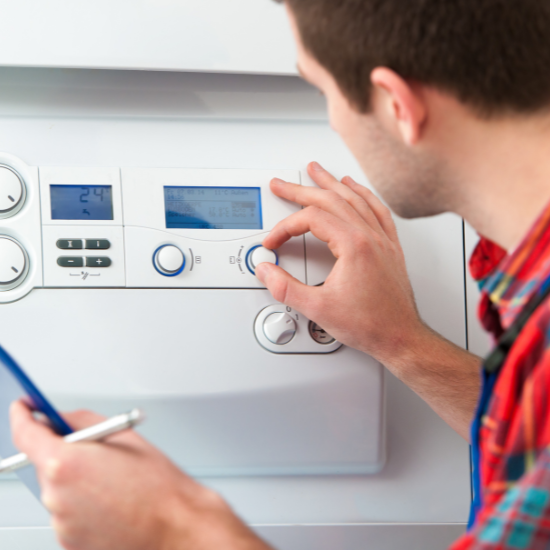Maintaining a safe and compliant property is essential for homeowners, landlords, and tenants alike. One of the critical components in ensuring this safety lies in conducting regular gas safety inspections and securing a valid Gas Safety Certificate. But how often should you get this done, and why is it so important?
This guide will walk you through everything you need to know about Gas Safety Certificates, from legal requirements to the process of scheduling inspections and the benefits of staying compliant.
What Is a Gas Safety Certificate
A Gas Safety Certificate, also known as a CP12 certificate in the UK, is an official document issued by a registered Gas Safe engineer upon completing a gas safety inspection. This inspection ensures that all gas appliances, fittings, and flues in your property meet the required safety standards.
Phil from Gastec says “Whether you’re a homeowner, landlord, or tenant, understanding the role and importance of this certificate is crucial in mitigating risks associated with gas appliances.”
Legal Requirements and Regulations
Understanding the legal framework surrounding Gas Safety Certificates helps clarify why they are not optional, but mandatory in many situations.
- Landlords’ Legal Duty
For landlords in the UK, it is a legal obligation under the Gas Safety (Installation and Use) Regulations 1998 to ensure all gas appliances, fittings, chimneys, and flues in rental properties are safe. A Gas Safety Certificate is required to prove compliance with these regulations.
- Private Homeowners
While private homeowners are not legally required to have a certificate, regular maintenance of gas appliances is strongly recommended to ensure a safe living environment.
- New Appliances
When a new gas appliance is installed, a registered gas engineer must complete a Building Regulations Compliance Certificate, which proves that the installation meets safety standards.
Ignoring these regulations can lead to serious consequences, as we’ll explore later.
How Often Should You Have a Gas Safety Inspection
The frequency of gas safety inspections depends on your situation:
- Landlords
It is legally required for landlords to conduct a gas safety inspection every 12 months. A current Gas Safety Certificate must also be provided to tenants at the start of their lease and renewed annually.
- Businesses
Similar to landlords, commercial properties using gas appliances need annual safety checks to ensure compliance with legal requirements and industry standards.
- Homeowners
For homeowners, annual inspections are recommended as a best practice to maintain appliance efficiency and ensure safety, though they are not a legal requirement.
Even if there’s no explicit mandate for homeowners, skipping inspections can create safety risks that are entirely avoidable.
What Does the Gas Safety Inspection Include
A gas safety inspection isn’t just a formality; it’s a comprehensive examination of the gas systems in your property. During the inspection, a Gas Safe registered engineer will:
- Check all gas appliances for functionality and safety.
- Inspect chimneys and flues to ensure they are clear and working correctly.
- Test gas pipework for leaks or defects.
- Ensure appliances are properly ventilated.
- Verify that safety devices are functioning as intended.
The inspection process is thorough, and once it’s completed, you’ll receive your Gas Safety Certificate if everything is deemed safe. If issues are identified, the engineer will recommend repairs or replacements.
Who Can Perform the Inspection
A qualified Gas Safe registered engineer is the only person authorised to perform gas safety inspections in the UK. They are highly trained professionals who possess the skills and certifications necessary for ensuring that your property complies with safety standards.
When searching for an engineer, always check the Gas Safe Register to confirm their credentials. Certified engineers will carry a Gas Safe ID card, which you can request to see before any work begins.
Consequences of Non-Compliance
For those who assume a laissez-faire attitude towards gas safety, it’s worth considering the risks:
- Legal Penalties
Landlords face severe fines and even imprisonment for failing to conduct annual inspections.
- Invalid Insurance
Many home or landlord insurance policies require your appliances to be regularly maintained. Failing to obtain a Gas Safety Certificate could render your coverage void.
- Safety Risks
The risk of gas leaks, carbon monoxide poisoning, or even explosions significantly increases without regular maintenance.
The real cost of neglecting gas safety could far outweigh the expense and effort of staying compliant.
Benefits of Regular Gas Safety Inspections
Ensuring regular gas safety inspections isn’t just about avoiding penalties; it’s about benefiting from peace of mind and enhanced living conditions:
- Preventing Accidents
Regular inspections can catch problems like gas leaks or faulty boilers before they escalate into life-threatening issues.
- Improved Appliance Lifespan
Routine maintenance increases the longevity of your gas appliances, saving you money in the long run.
- Energy Efficiency
Well-maintained appliances often operate more efficiently, leading to lower energy bills and a reduced carbon footprint.
- Tenant Satisfaction
For landlords, ensuring a safe property improves tenant retention and satisfaction, enhancing your reputation as a responsible property owner.
Clearly, regular inspections are a worthwhile investment for everyone involved.
How to Find a Qualified Gas Engineer
Finding the right engineer is a critical step in securing your Gas Safety Certificate. Follow these tips to ensure you’re working with a qualified professional:
- Search the Gas Safe Register
This is your go-to resource for locating certified engineers in your area. The official website allows you to search by postcode and filter by specific services.
- Check Reviews and Recommendations
Look for engineers with strong reviews or ask for recommendations from trusted sources like friends, family, or local community groups.
- Verify Credentials
Always request to see the engineer’s Gas Safe ID card, which confirms their qualifications.
- Compare Quotes
While cost shouldn’t be your only consideration, obtaining multiple quotes helps ensure you’re getting a fair price for the service.
Key Takeaways About Gas Safety in Your Property
Staying on top of gas safety is crucial, whether you’re a landlord, business owner, or homeowner. Here’s a brief summary of what we’ve covered:
- Landlords must conduct annual gas safety inspections and provide tenants with a valid Gas Safety Certificate.
- Homeowners are encouraged to schedule annual checks to ensure safety and appliance efficiency.
- Gas safety inspections must be conducted by a Gas Safe registered engineer.
- Failing to comply can result in severe legal and financial consequences, not to mention risks to life.
Taking gas safety seriously fosters a secure and comfortable environment for everyone. If you want to schedule your next gas safety inspection, start by searching the Gas Safe Register for qualified professionals in your area.




